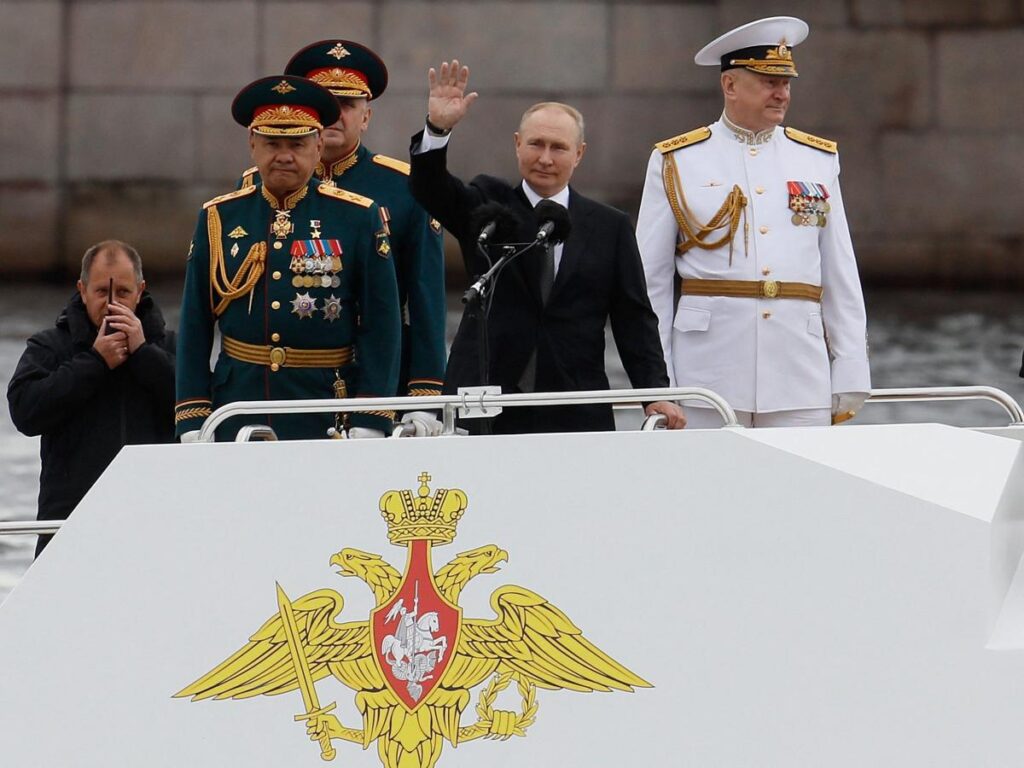In a significant move amidst the ongoing Ukraine conflict, Russian President Vladimir Putin has approved a record defense budget for 2025, marking a substantial increase in military spending that reflects the country’s sustained commitment to its military efforts. The new budget allocates 13.5 trillion rubles (approximately $126.8 billion) for national defense, which represents a sharp rise from the 10.8 trillion rubles designated for 2024. This expenditure will account for 32.5% of Russia’s federal budget, an increase from the previous year’s allocation of 28.3%. The approval process for this budget unfolded rapidly over the last ten days, following its proposal in September. As the war in Ukraine enters its fourth year come February, this budget highlights the Kremlin’s prioritization of military funding even in the face of numerous international sanctions.
Despite the significant military investment, the Russian economy remains under strain due to inflation and a declining ruble. The war-driven economic activities are exacerbating inflation, prompting the central bank to raise interest rates to a record high of 21%. The top central banker of Russia has identified the economy as being at a “turning point,” anticipating a gradual decrease in the interest rate as inflation begins to stabilize. However, the ruble has fallen to its lowest value in over two and a half years, raising concerns among economists and citizens alike. In light of this economic turmoil, Putin has urged the public to remain calm regarding the currency’s decline, emphasizing stability despite growing challenges.
Analysts at the Institute for the Study of War have pointed out that while the budget boost underscores Russia’s commitment to national defense, it does not necessarily translate to enhanced military capabilities. A significant portion of this increased defense budget will be allocated toward benefits for soldiers, veterans, and their families, limiting the available funds for direct military enhancements. The focus on military expenditures is reportedly straining social programs within Russia, potentially impacting the government’s ability to sustain its war efforts against Ukraine as the economy faces mounting pressures. The analysts have emphasized that ongoing defense spending decisions could have longer-term implications for Russia’s overall economic stability and social welfare systems.
Feedback from prominent business figures like Andrei Kostin, CEO of VTB, paints a complex picture of the Russian economy amidst the protracted conflict and its accompanying challenges. While Kostin acknowledges that the war and the resultant sanctions have created a distinctly unusual economic climate, he maintains that the Russian economy remains fundamentally “healthy.” His forecasts suggest GDP growth rates that may surpass those of international estimates. The International Monetary Fund (IMF) anticipates modest growth of 1.3% for Russia in 2025, lower than Kostin’s prediction of 1.9%, which reflects a belief in the resilience of Russia’s economic mechanisms despite ongoing challenges.
Nonetheless, the reality is that the prolonged war efforts and increasingly heavy burden of economic sanctions are leading to a forecasted slowdown for the Russian economy. The clash between military expenditure and necessary social program funding could create a dichotomy that may become unsustainable over time, especially as public sentiment and the effects of prolonged conflict take root. Even as Russia appears to focus on maintaining military momentum, the potential trade-offs with its domestic social agenda pose significant risks to the stability of Putin’s regime.
As the geopolitical landscape continues to shift, the implications of Russia’s defense spending could resonate beyond immediate military outcomes. The prioritization of defense amid economic struggles suggests a broader strategy from the Kremlin to solidify power and influence through military means. However, the balancing act of ensuring military readiness while addressing economic and social stability remains a challenge. The outcome of this approach will likely shape the trajectory of Russia’s domestic situation and its interactions on the global stage, particularly as the conflict in Ukraine persists and the repercussions of international sanctions continue to unfold.

